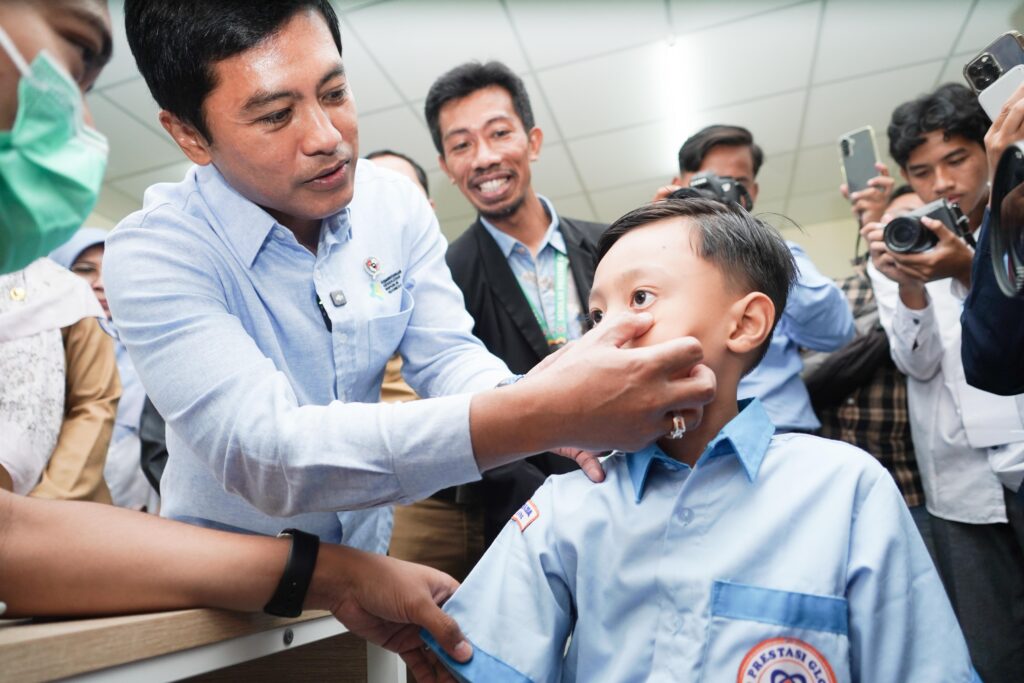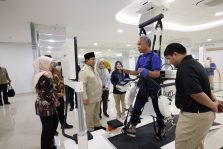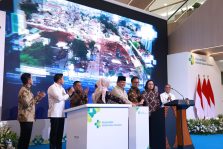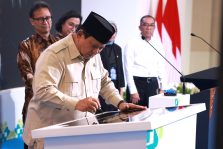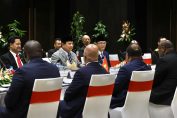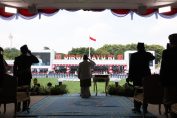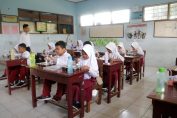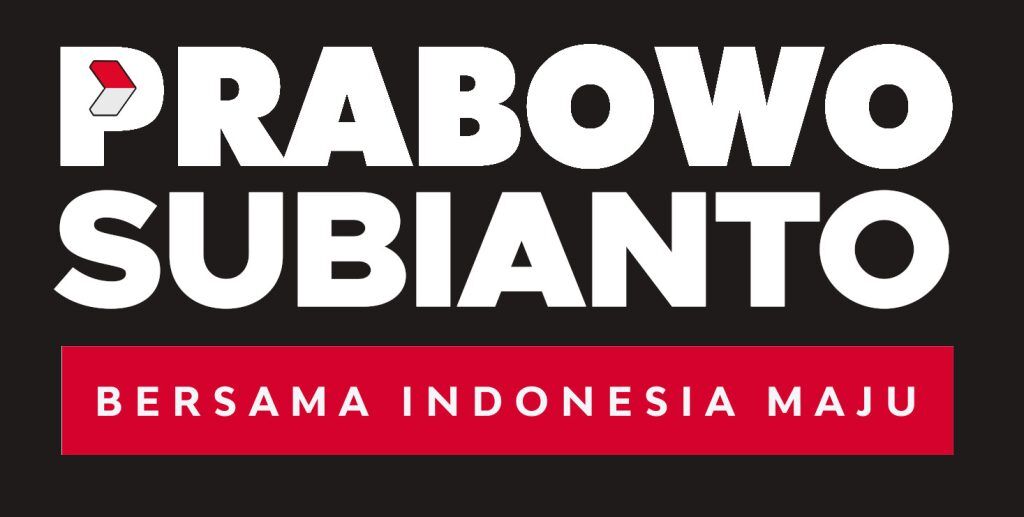Bandung, August 4, 2025 — The Indonesian government has officially launched the Free Health Check Program (CKG) for students across the country. This nationwide initiative, part of President Prabowo Subianto’s Quick Win agenda, aims to detect physical and mental health issues early among school-aged children, while laying the foundation for a healthier, more resilient generation.
Minister of Health Budi Gunadi Sadikin emphasized that this is more than just a healthcare intervention—it is a long-term investment in the nation’s future.
“Children’s health is not just a medical issue—it’s a national imperative. They are the next generation. If we want a strong, advanced Indonesia, we must ensure our children are healthy—physically, mentally, and socially,” Minister Budi stated during a press conference at SMP Negeri 5 Bandung.
The program includes a comprehensive range of screenings, such as height and weight measurements, dental and vision checks, and mental health assessments. Teachers and parents are also involved through educational activities promoting healthy living.
“We want our children to learn and grow to their fullest potential. That’s why their health must be a priority—not an option,” Budi stressed.
The Minister also acknowledged the strong collaboration from local governments, schools, and ministries—especially the Ministry of Primary and Secondary Education—in making this program possible.
“Health and education must go hand in hand. Healthy children learn better, and educated children will build a stronger nation,” he added.
Representing the Presidential Communication Office (PCO), Prita Laura emphasized that CKG is part of a broader national strategy to develop world-class human capital under the leadership of President Prabowo Subianto and Vice President Gibran Rakabuming Raka.
“This program was launched now because the Prabowo-Gibran administration is fully committed to building excellent human resources,” Prita explained.
She noted that CKG is not a standalone policy but part of a transformative policy suite, alongside the Free Nutritious Meals initiative, education innovations like Sekolah Rakyat and Sekolah Garuda, and other key programs in the health and education sectors.
“This free health check is a concrete step by the state to prevent health risks as early as possible and to secure a better future for Indonesia’s children,” she added.
West Java Vice Governor Erwan Setiawan stated that the program will prioritize the province’s 8.6 million students. In early monitoring of 14 students who had been screened, nine were found to have vision impairments.
“This is a serious concern. The Provincial Health Office will classify schools into red, yellow, and green zones. Schools in the red zone will receive special attention, including reinforcement and intensive monitoring by local health centers,” said Erwan.
He added that yellow-zone schools must be guided to prevent regression, while green-zone schools should maintain their current standards. “When the screening is repeated next year, we don’t want to see any backsliding. The local government will continue to monitor this closely,” he said.
Bandung Mayor Muhammad Farhan underscored the importance of cross-sector collaboration to meet the Minimum Service Standards (SPM), particularly in child health. He noted that relevant data would be compiled from multiple agencies, including the Health Department, the Youth and Sports Department (Dispora), and the Ministry of Social Affairs, particularly concerning children facing malnutrition due to socioeconomic challenges. The involvement of the Women’s Empowerment and Child Protection Agency (DP3A) was also deemed essential.
“All parties must work together. The data we gather should not just be collected—it must be used by all stakeholders so we can truly meet minimum service standards, especially for our children,” said Mayor Farhan.
At SMP Negeri 5 Bandung, 144 seventh-grade students underwent health screening on launch day.
The Ministry of Health aims to gradually roll out CKG to thousands of schools across Indonesia, prioritizing areas with limited access to healthcare services.
Indonesia’s future depends on its youth. Early health screening is a critical foundation to ensure they grow up healthy, learn effectively, and reach their full potential.

